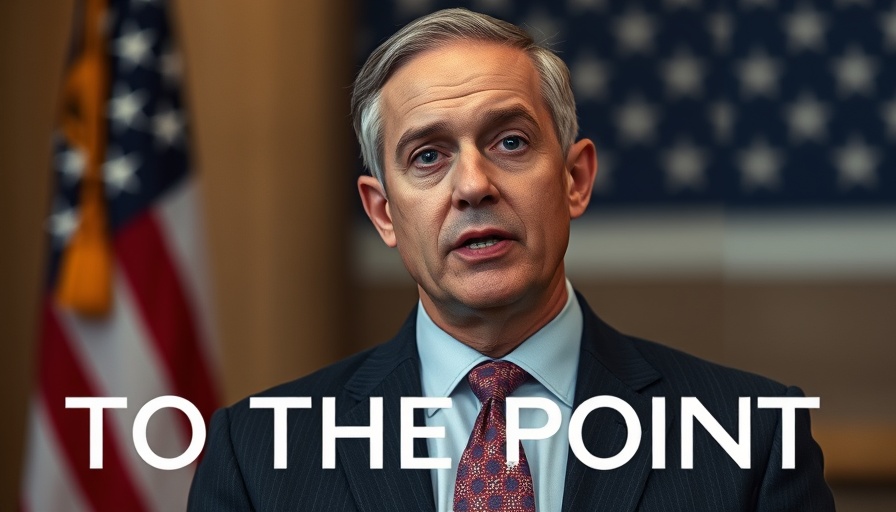
Unraveling Joe Biden's Health: What We Didn't Know
When news broke that President Joe Biden is facing a diagnosis of prostate cancer, the reaction was swift and emotional. Former President Donald Trump extended his well-wishes to Biden, showing a rare moment of unity in the often-divisive landscape of American politics. However, this news prompts us to question the timeline of Biden's health and by extension, the transparency we expect from our leaders.
In 'Joe Biden's diagnosis may have been further back than we realize', the discussion dives into the complexities surrounding Biden's health, prompting a deeper analysis of transparency in political leadership.
Understanding Prostate Cancer: The Long View
Prostate cancer, as many health experts will tell you, is a slow-moving condition. Unlike aggressive cancers that can spread quickly, prostate cancer often develops over many years. The implications of this fact are significant because they raise questions about the potential signs and symptoms Biden may have been experiencing. Health professionals, including Biden's own physician, might have had insights into his condition much earlier than we realized.
When Was Biden's Last Physical?
After examining public records, Biden's last recorded physical was in February 2024, notably lacking an important blood test known as a PSA test. This test measures the level of prostate-specific antigen in the blood, which can indicate prostate cancer. The absence of this test raises eyebrows: Did those responsible for Biden's health have a responsibility to investigate further? Did they disclose everything they knew?
Implications for Leadership and Trust
The question of who knew what and when is not just about Biden's health; it transcends political lines. For conservatives and for the average American, understanding the health of our leaders is vital. It forms our perception of trust and transparency in government. Many constituents hold the belief that key information is often withheld, leading to feelings of unease and skepticism regarding our leaders' decisions. In this way, the implications of Biden's diagnosis open a broader conversation about accountability and health disclosures in politics.
The Broader Context: Politics and Health
Such situations are not unique to Biden. Other political leaders have faced public scrutiny over their health issues, from former President Trump to various senators and representatives. In an era where information is king, the responsibility to disclose health-related concerns takes on new significance. The role our leaders play in shaping the narrative around their health can impact their credibility and our democracy itself.
Public Reaction: Mixed Emotions
Public reactions to Biden's diagnosis have been mixed. Many Americans feel empathy towards him and his family. The sentiment resonates deeply especially among those who understand how difficult a cancer diagnosis can be. On the other hand, there are palpable frustrations about the lack of clear communication from Biden and his administration regarding this health matter. Such mixed emotions illustrate the delicate balance leaders must maintain between their privacy and their duty to the public.
What This Means for Future Leadership
The revelations around Biden's health could have far-reaching implications regarding expectations for transparency in leadership moving forward. As members of the Republican party point out, trust in government is fundamental to a functioning democracy. Voters may demand changes in how health statuses are reported to the public moving ahead, prompting future leaders to adopt more open practices.
Final Thoughts: A Call for Transparency
As Biden navigates this new chapter in his life, it is vital for the discourse surrounding his health and the timelines involved to remain grounded in facts. This situation reminds us of the importance of transparency and open communication in leadership roles. Moving ahead, let us advocate for clarity, understanding, and honest discourse regarding our leaders' health—an effort that will ultimately strengthen our democracy.
If you believe in fostering open communication in government, consider advocating for transparency in politics. Let your voice be heard in the democratic process to ensure that every American feels informed and secure.
 Add Row
Add Row  Add
Add 




 Add Row
Add Row  Add
Add 

Write A Comment